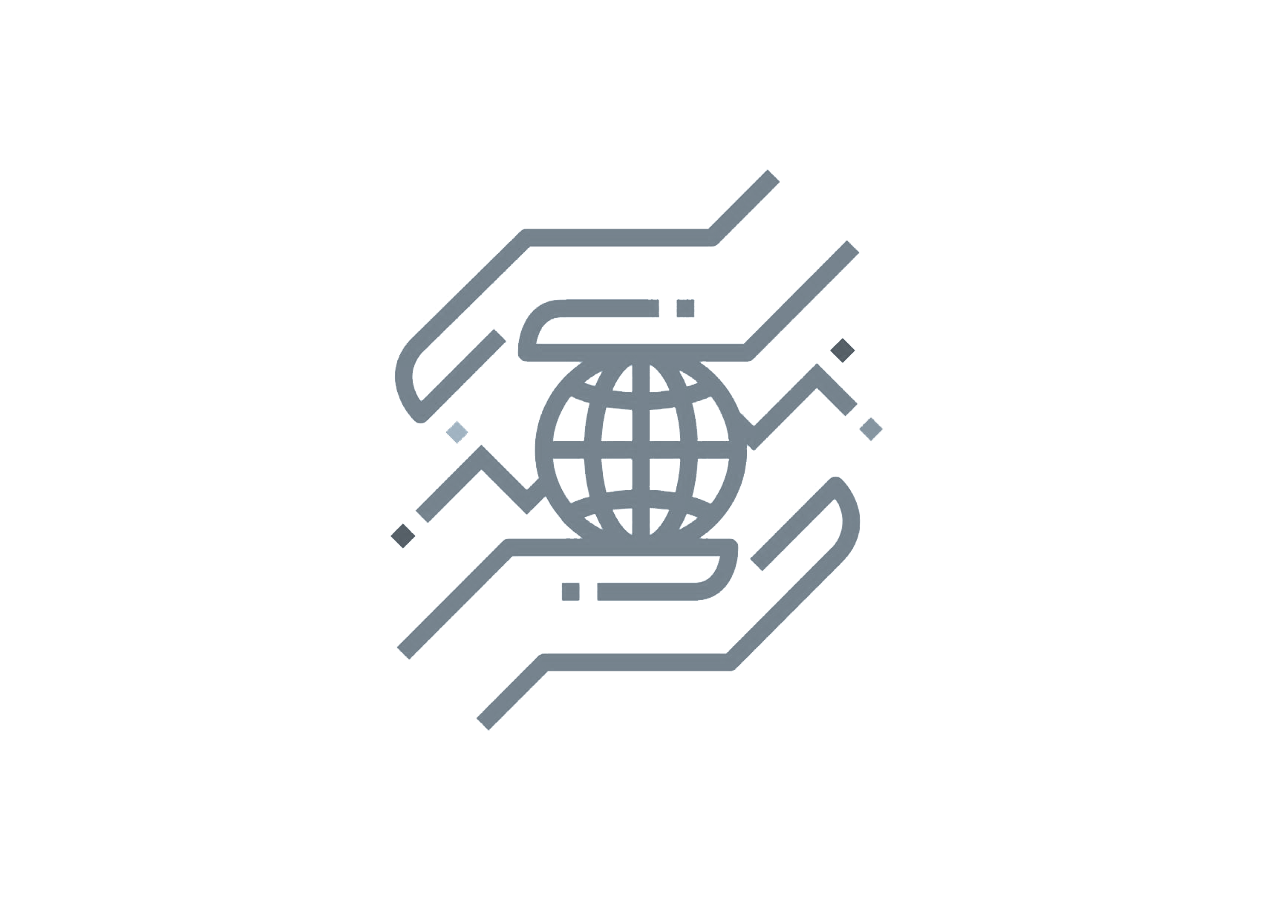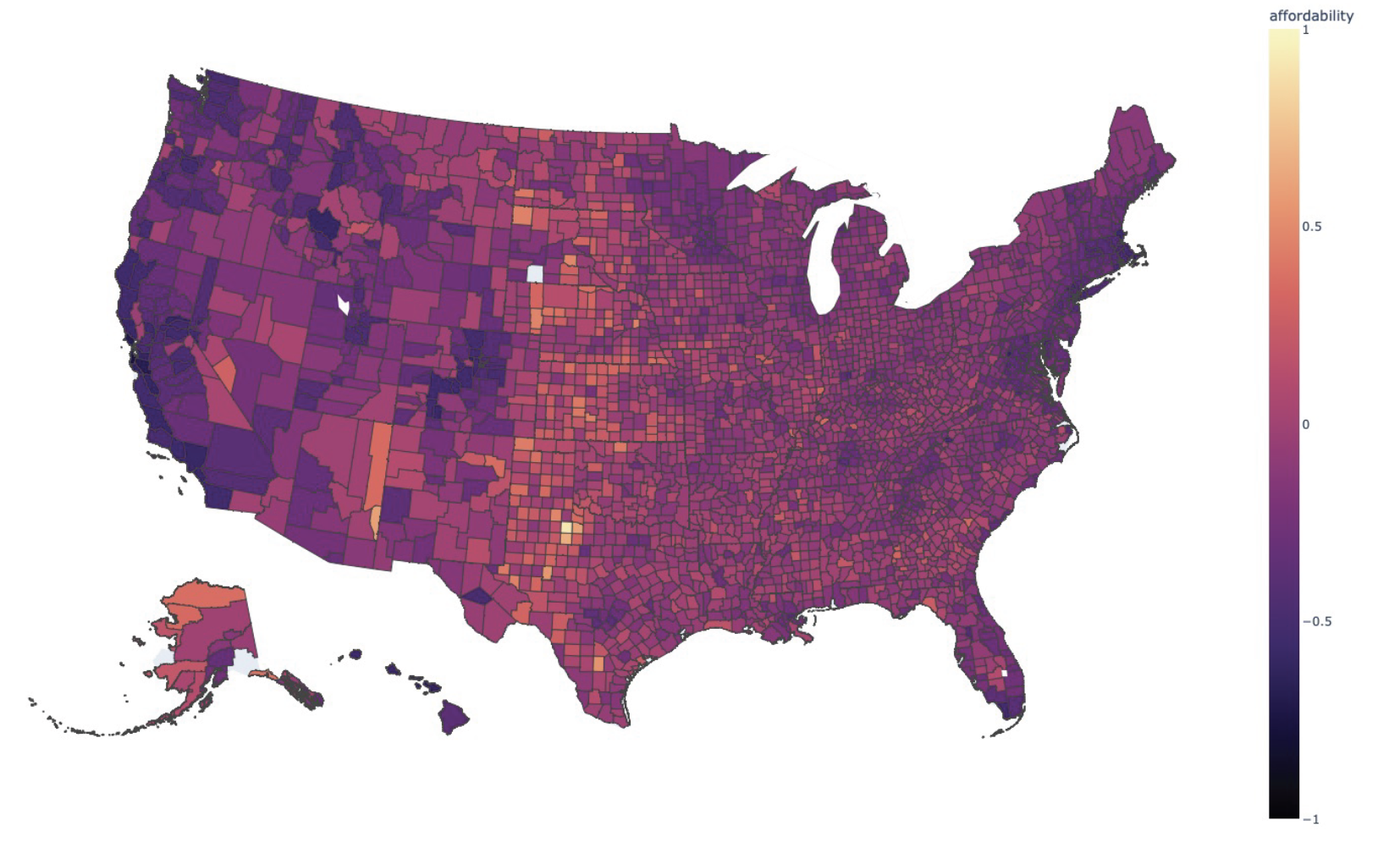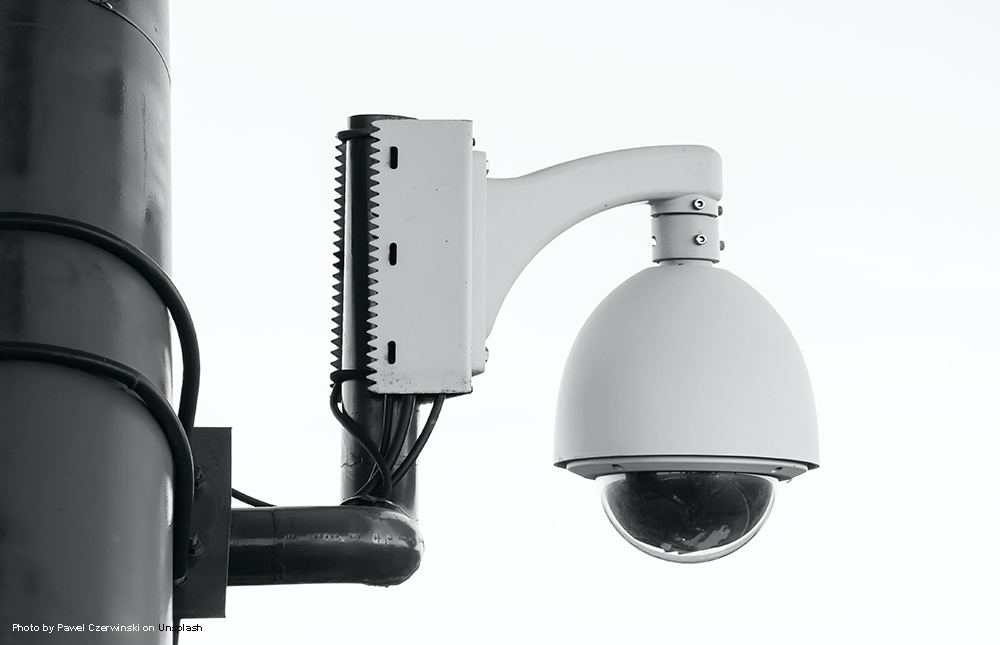Conferences and Workshops
-
7th Annual MIT Policy Hackathon
Use real world data to solve real world challenges. Apply to join this year’s in-person Policy Hackathon taking place November 15-17.
READ MORE -
Who Can Afford to Buy a Home in America?
Owning a home is one of the most important ways of building wealth in America. As rises in home prices outpace rises in income, fewer and fewer Americans can afford to buy a home, causing the generational wealth gap to widen. Housing assistance programs are imperative to expand access to homeownership – particularly for Black Americans, who have historically been excluded from stable homeowning through policies and practices including redlining and exclusionary zoning. Designing effective housing assistance requires understanding where gaps in affordability currently exist for potential homeowners. Read more.
READ MORE -
Race-Neutral vs Race-Conscious: Using Algorithmic Methods to Evaluate the Reparative Potential of Housing Programs
The racial wealth gap in the US remains a persistent issue; white individuals possess six times more wealth than Black individuals. Leading scholars and public figures have pointed to slavery and post-slavery discrimination as root cause factors, and called for reparations. Yet the institutionalization of race-neutral ideologies in policies and practices hinders a reparative approach to closing the racial wealth gap. Read more.
READ MORE -
iBuyers and “Race for Profit”
iBuyers use automated valuation algorithms and streamlined home-buying processes, including exemption of repairs before selling and cash offers, to purchase homes. Previous literature has examined the roles and limitations of iBuyers in the housing market, but there is a lack of empirical research on the racial implications of these algorithmic home-buying processes. Using spatial lag model, this study identifies spatial clustering of iBuyer profit margins and a statistically significant and positive correlation between profit margins and the rise in the proportion of Black or Latinx residents within a given neighborhood tract. This work will be submitted to Journal of Urban Affairs. Read more.
READ MORE -
Studying the impact of police surveillance on racial bias using open data
Using data from 2000+ police departments, this project measures the effects of policing technologies, including face recognition, drones, body-worn cameras, predictive policing, and home security partnerships, on racial biases in law enforcement.
READ MORE -
The Police or the Public? 911 Calls and Racial Discriminations in Policing
A large proportion of police-citizen interactions are initiated by 911, and thus pairing 911 call data with police stop data provides a step toward a more systematic causal framework for estimating racial bias.
READ MORE -
Tradeoffs in Hotspot Predictive Policing
Predictive policing systems use narrowly scoped data and narrowly defined objectives that lead to 'hotspot' policing — disproportionate policing of small areas. What impact does this have on communities beyond how it effects crime? We examine how algorithms can lead to changes in police practices and policies.
READ MORE -
Understanding the Causal Effect of Race in the Criminal Justice System
Applying a systematic framework to causally understand the effect of race on policing, the policing team looks at linked data quantitatively to estimate how different races benefit or suffer differently from the same policy interventions.
READ MORE -
A Data Generative Approach to Criminal Justice Records Linkage Problems
Linking law enforcement data, which is collected through heterogeneous administrative processes, into a stitched data set will provide a more systematic characterization and insightful understanding of law enforcement.
READ MORE
Institute for Data, Systems, and Society (IDSS) is committed to addressing complex societal challenges by advancing education and research at the intersection of statistics, data science, information and decision systems, and social sciences.
News

‘It symbolises rugged individualism’: The bumpy road to electrify the pickup truck
IDSS faculty Jessika Trancik says electric pickup trucks produce emissions savings of between 30-60% compared with traditional pickups – a greater reduction than switching a smaller car to electric.

Empowering systemic racism research at MIT and beyond
IDSS researchers in the MIT Initiative on Combatting Systemic Racism are building an open data repository to advance research on racial inequity in domains like policing, housing, and health care.

3 Questions: Can we secure a sustainable supply of nickel?
In published study, researchers including TPP alum Karan Bhuwalka SM '21, PhD ’24 examine the case of nickel, an essential element for electric vehicle batteries, solar panels and wind turbines.








